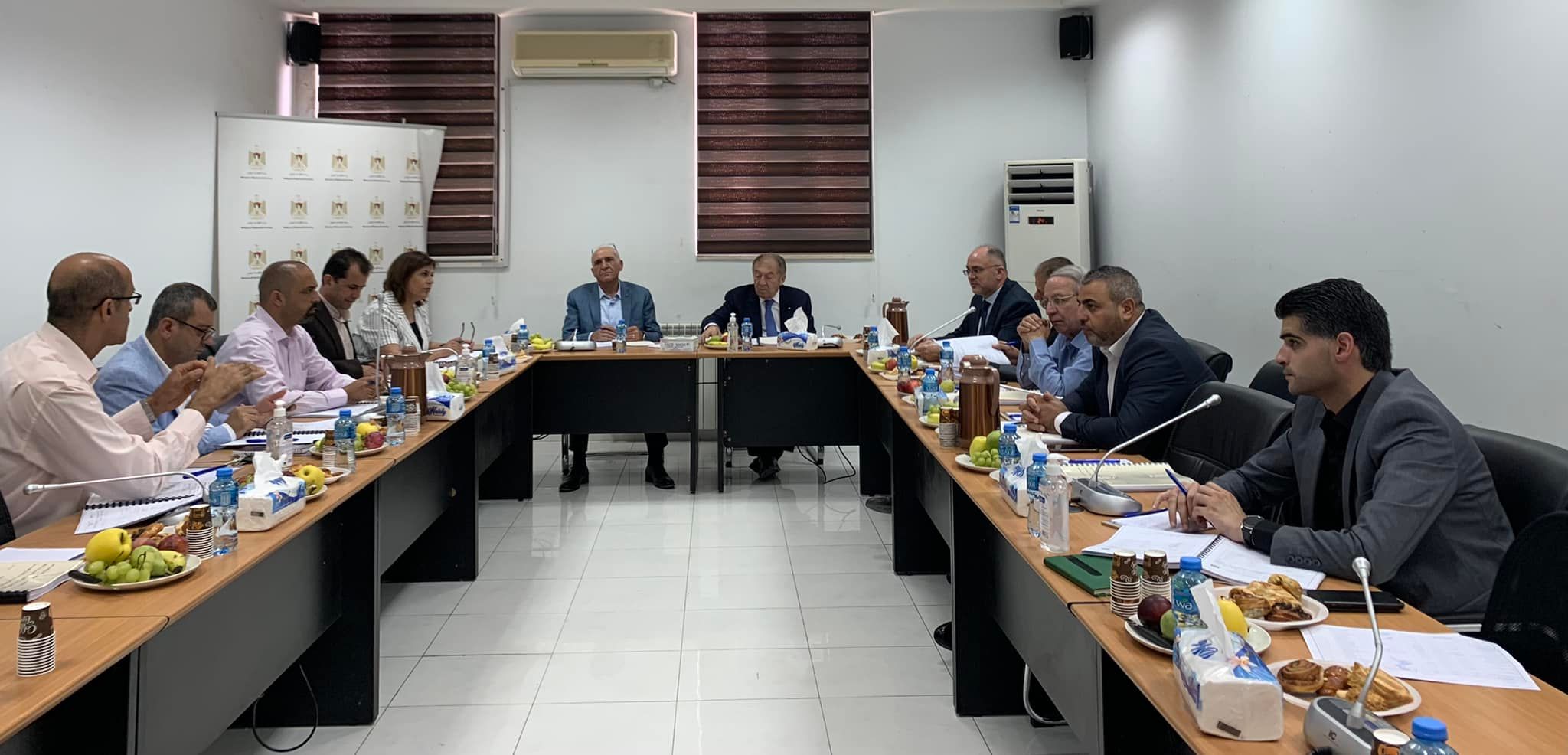"Standards and Metrology Institution Board of Directors Holds Its Third Meeting of the Year"

Standards and Metrology Institution Board of Directors Holds Its Third Meeting of 2022
Chaired by Minister of National Economy, Mr. Khaled Al-Osaily, who also serves as Chairman of the Board of the Standards and Metrology Institution, the Board held its third meeting of 2022 today, with the participation of the Institution’s Director General, Eng. Haidar Hajjeh.
The Board reviewed the cumulative report on the implementation of the 2022 operational plan, which included the Institution’s activities and achievements during the first half of the year. Board members commended the Institution’s performance and accomplishments.
The Board approved 58 Palestinian standards, including 53 new standards and 5 updated ones, in various fields such as animal feed, fertilizers and pesticides, personal protective equipment, and agricultural facilities.
In addition, the Board approved the continued validity of 55 existing standards and the cancellation of 4 standards, in accordance with the standard development guidelines, which stipulate the review of any standard after five years from its date of issuance.
The Board also reviewed a Cabinet decision specifying the authorities responsible for oversight and enforcement of mandatory technical regulations. According to the decision, the Ministry of Health, Ministry of Labor, Ministry of National Economy, and the Environment Quality Authority were designated as competent authorities for monitoring and enforcing Regulation No. 99/2021, which governs the classification, labeling, and packaging of substances and mixtures.
Additionally, the Ministry of Health and the Ministry of National Economy were identified as the competent authorities for overseeing and enforcing:
-
Regulation No. 100/2022 on food information to consumers,
-
Regulation No. 101/2022 on coffee and chicory extracts, and
-
Regulation No. 102/2022 on food additives, which amends Regulation No. 81/2019.
The Board encouraged regulatory bodies to fully implement these decisions.
Finally, the Board approved a project to qualify farmers for certification under good agricultural practices (GAP) for plant production, and to improve agricultural practices in animal production. The aim of the project is to enhance the safety of agricultural products in Palestine by supporting the institutionalization of PALGAP—a national Palestinian agricultural quality system based on international best practices and tailored to the local context and needs.